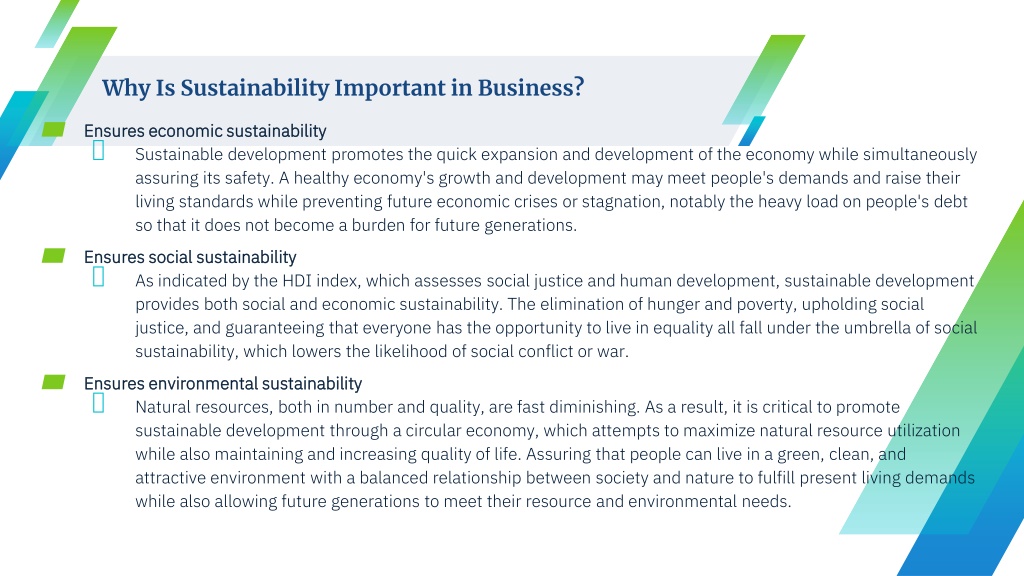

Supporting ethical and sustainable businesses is essential for a more responsible and equitable future. Imagine a world where your purchases directly contribute to positive change—a world where businesses prioritize environmental and social well-being alongside profitability. Ethical and sustainable businesses represent a powerful force for positive change. They aim to minimize their environmental impact, treat workers fairly, and operate with transparency and integrity. They produce and sell goods in ways that promote social justice and ecological harmony. This trend presents an opportunity for change and a significant solution for individuals and companies. This article explores the vital role of supporting ethical and sustainable businesses, examining the issues they address, and offering practical strategies to effect meaningful change. We will look at their impact on society and the planet, and show how you can make a difference by supporting them.
Understanding the Importance of Ethical Consumption
Defining Ethical and Sustainable Businesses
Ethical and sustainable businesses prioritize environmental and social responsibility along with profitability. Their commitment to ethical practices extends beyond profit margins, encompassing considerations of environmental impact, fair labor practices, community engagement, and transparent operations. This means reducing their ecological footprint by minimizing waste, using recycled materials, and adopting sustainable production processes. They also strive to uphold fair labor standards by ensuring safe working conditions, fair wages, and opportunities for advancement for employees. Ethical businesses actively contribute to local communities through their philanthropic endeavors. They also operate with transparency and accountability. They provide clear information on their business practices and supply chains, so consumers can make well-informed choices.
The Impact on Society and the Environment
Addressing Environmental Concerns
Supporting ethical businesses addresses critical environmental concerns. These businesses often employ innovative solutions to reduce their carbon footprint, such as using renewable energy sources, minimizing waste and pollution, and implementing sustainable packaging. For example, companies like Patagonia have made significant investments in environmentally conscious practices and have publicly committed to reducing their environmental footprint. Their success exemplifies how ethical business practices can foster positive change. Furthermore, supporting these companies encourages other businesses to adopt similar strategies, driving systemic change within the industry. This is essential for combatting climate change and preserving our natural resources.
Promoting Social Responsibility
Upholding Fair Labor Practices
Supporting ethical businesses also means supporting fair labor practices. Businesses that prioritize ethics ensure their employees receive fair wages, safe working conditions, and opportunities for growth. This contrasts with companies that may exploit workers for cheap labor, impacting entire communities. Supporting ethical companies directly helps to promote social justice and economic fairness. This support also strengthens the workforce and reduces inequalities within communities. For example, companies like TOMS Shoes have a strong commitment to social responsibility. A portion of their profits are often donated to charity or invested in initiatives that benefit communities worldwide.
The Ripple Effect of Sustainable Choices
The Power of Collective Action
Supporting ethical and sustainable businesses is a collective action. When consumers actively choose products and services from these companies, they send a powerful message to the market that ethical and sustainable practices are valued and profitable. This market demand motivates other companies to adopt sustainable practices to remain competitive. The collective impact of consumers choosing sustainable businesses can have a significant impact on the overall industry, leading to widespread change in the sector. Additionally, ethical consumption can encourage companies to make ethical decisions, prompting a cycle of positive change.
The Role of Ethical Consumerism
Making Informed Choices
Ethical consumerism plays a critical role in supporting ethical and sustainable businesses. It is about being conscious of the environmental and social impact of our purchasing decisions. Consumers are increasingly seeking out companies with transparent supply chains and commitment to sustainability. For instance, many consumers today prioritize brands with transparent supply chains. This transparency helps consumers understand the origins of the products and services they buy. They are also focused on companies that use recycled materials or promote environmental conservation in their manufacturing process.
Practical Strategies for Supporting Ethical Businesses
Evaluating Company Practices
When considering a purchase, take the time to evaluate a company’s practices. This involves researching the company’s commitment to ethical sourcing and environmental sustainability. Look for certifications like Fair Trade or B Corp. Researching their policies or reporting on their sustainability initiatives can provide crucial information. By taking the time to do your research and carefully consider each purchase, you can identify companies with a demonstrated commitment to ethical practices. These investigations often reveal valuable insights about a company’s environmental and social performance.
Building Sustainable Communities
Engaging with Local Businesses
Supporting ethical and sustainable businesses often supports local communities. Locally owned businesses often have a greater commitment to the well-being of their communities, creating a local economy that is more robust and sustainable. Consumers can support their local economy while also fostering a community committed to ethical practices. Supporting local businesses also helps maintain cultural identity and promotes local employment opportunities.
In conclusion, supporting ethical and sustainable businesses is crucial for a better future. By making conscious choices as consumers, we empower businesses to adopt more responsible practices. This ripple effect creates positive change, from reducing environmental impact to promoting social justice. Ultimately, supporting ethical businesses is not just about choosing a product; it’s about actively contributing to a more sustainable and equitable world. Next time you’re making a purchase, consider the ethical and environmental footprint of the company. Look for certifications, research their practices, and engage in responsible consumption. Your actions make a difference!